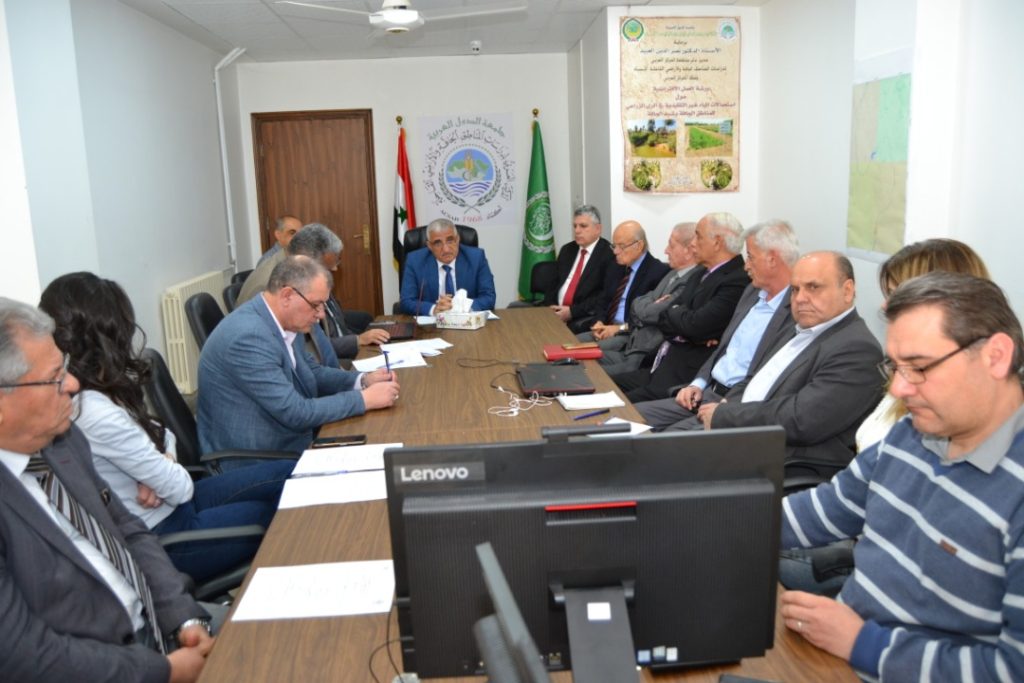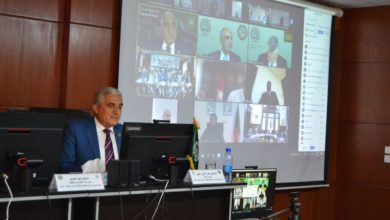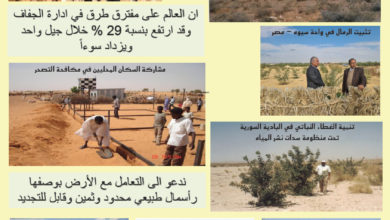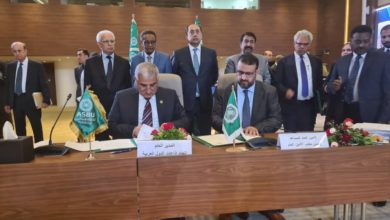ACSAD and FAO-Training Course of Using (AquaCrop) Program for Irrigation Management

Today, The Arab Center for the Studies of Arid Zones and Dryland, in the partnership with the United Nations Food and Agriculture Organization, launches a training course on using the AquaCrop program for irrigation management and the study of climate change impact on the crop productivity, with the participation of eighteen trainees from Lebanon, Jordan, Palestine, and Egypt.
His Excellency, Dr Naser Edin Obeid, the Director-General of the Arab Center for the Studies of Arid Zones and Drylands ACSAD, affirmed in a speech that building and developing the Arab capabilities in the field of modern technologies usage, particularly the AquaCrop model, is a fundamental step which the bodies related in water in the Arab region should work on challenging and sincerely to find the viable solutions for the most challenging issue facing the area, which is the water issue, which is under a combination of the pressures mainly of increasing water needs in exchange for the scarcity of available water, the deterioration of the quality of a large part of the water, and the low efficiency of its use.
He calls to mobilize all required potentials to set the appropriate procedures to improve irrigation management. The AquaCrop model is one of the most important methods with excellent efficiency in providing nuanced information about crops’ water needs; the information required to evaluate water duties accurately helps improve irrigation management and upgrades its efficiency.
He also indicated the limitation of the available water resources in the Arab region since its gross annual volume is not more than 260 billion cubic meters, whereas its demand exceeds much more. The region’s annual water quota per capita is approximately 600 cubic meters. It exceeds the scarcity level internationally evaluated by one thousand cubic meters per capita in the year. Thirteen countries of the world’s nineteen ones of water most scarce are Arab countries. The water gap is expected to jump to about 130 billion cubic meters from 2020 – to 2030.
Dr Obeid explained that the expansion in using the modern technologies to raise water efficiency in the irrigation sector and building capacities in this field should tremendously improve the investment of the available water resources beside to high productivity in the Arab region and downsize the water gap, reduce nutrition gap value, especially cereal, on its top the wheat which challenges of getting it have multiplied recently under the Ukrainian-Russian crisis. they are considered the two primary resources of wheat that many Arab countries import. He also pointed to the disruption in some of its supply chains and its price rise to unacceptable levels.
It is expected that the price is to multiple more if the crisis goes on, and Arab countries have been forced to import wheat from other countries such as Australia, Canada, and the USA due to the far distance and price rise of oil.
The three-day course aims to convey the great experiences of the Arab Centre’s experts on the AquaCrop model, which is one of the most important pillars of building capacities project, to technicians from Agriculture Ministries in the Arab Republic of Egypt, the Lebanese Republic, State of Palestine, and the Hashemite Kingdom of Jordan, by introducing them to the components of the model and its most significant application, especially evaluating water duties, calculating water productivity, and organising irrigation schedule actions to improve the irrigation management and raise its efficiency, especially at the field level.



